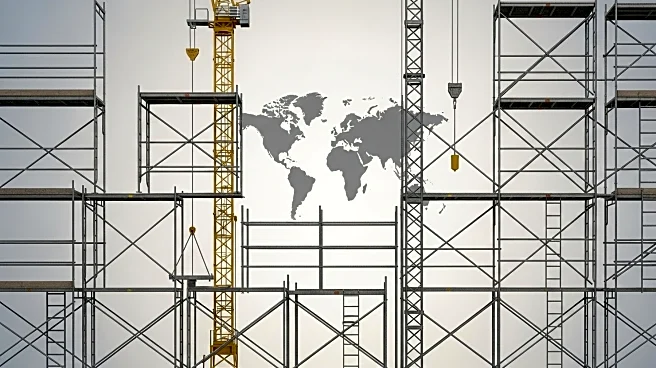What's Happening?
The International Access and Scaffolding Association (IASA) has been officially launched at the ScaffEx25 conference in Manchester, bringing together scaffolding associations from the UK, Japan, New Zealand, Malaysia, Australia, the US, and Canada. This new global body aims to align industry standards, promote best practices, enhance safety and training, and improve the overall image of the scaffolding sector. The IASA has outlined five key priorities: improving the trade's image, developing global talent pipelines, driving innovation, strengthening compliance, and standardizing training to support workforce mobility. According to Wayne Connolly, president of the UK's National Access and Scaffolding Confederation (NASC), this initiative marks a significant turning point for the industry, uniting leading scaffolding associations worldwide to champion the sector and elevate its standards.
Why It's Important?
The establishment of the IASA is significant for the global construction and infrastructure sectors, as scaffolding is a critical component in these industries. By aligning standards and promoting best practices, the IASA aims to enhance safety and efficiency, which could lead to reduced project costs and improved project outcomes. The focus on developing global talent pipelines and standardizing training can facilitate workforce mobility, addressing labor shortages and skill gaps in the industry. This initiative also seeks to improve the perception of scaffolding as a vital trade, potentially attracting more talent and investment into the sector. The collaboration among international associations could lead to more cohesive and effective industry regulations, benefiting stakeholders across the globe.
What's Next?
The IASA plans to expand its membership by reaching out to scaffolding associations in additional countries in the coming months. This expansion could further strengthen the association's influence and ability to implement its priorities on a global scale. As the IASA begins its work, industry stakeholders, including construction companies and regulatory bodies, may need to adapt to new standards and practices. The association's efforts to drive innovation and compliance could lead to the development of new technologies and methodologies in scaffolding, potentially transforming the industry. Stakeholders will likely monitor the IASA's progress and its impact on global construction and infrastructure projects.









